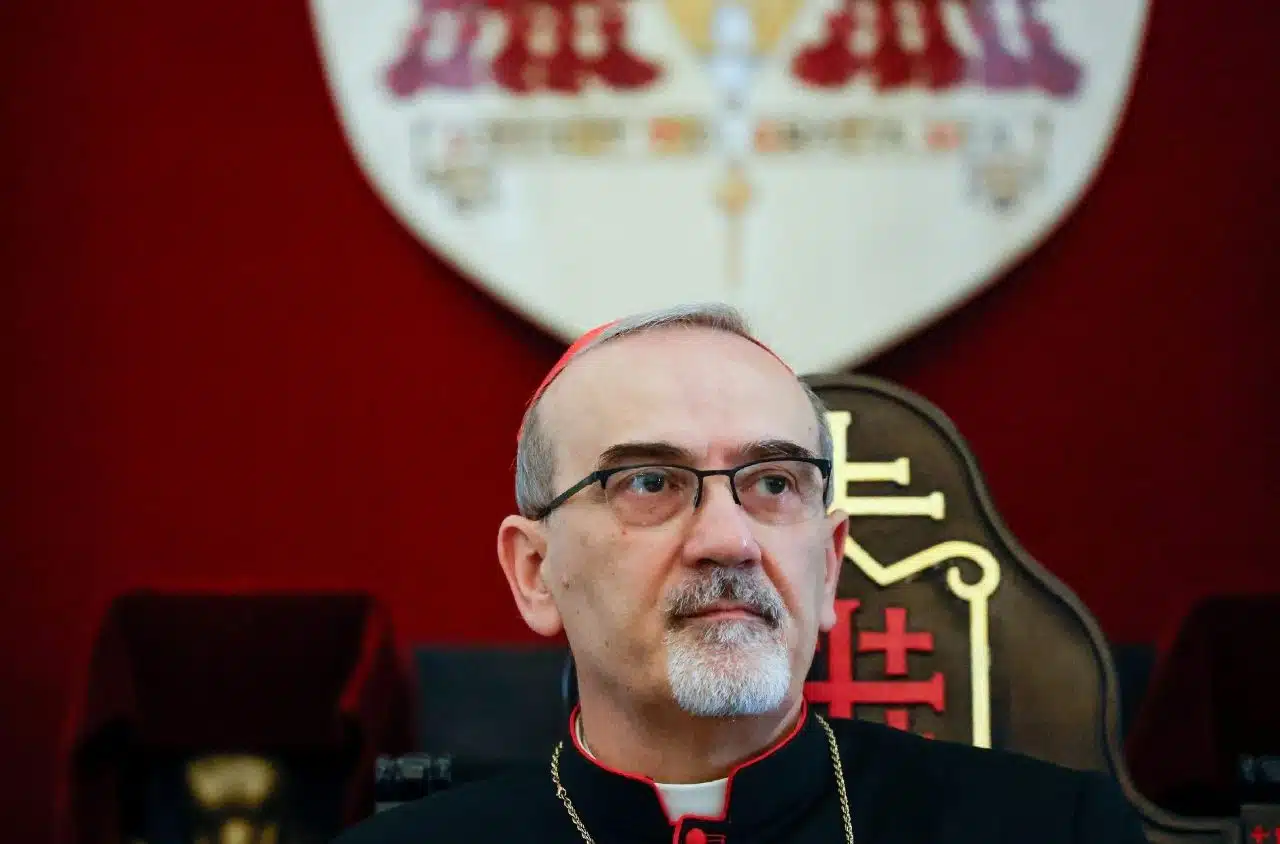Patriarch Pizzaballa: ‘We cannot afford the luxury of giving up’
By Kielce Gussie
Peace was once again the word of the day on Sunday, May 18. Cardinal Pierbattista Pizzaballa, Latin Patriarch of Jerusalem, joined his voice with that of Pope Leo XIV, who during his homily and Regina Caeli greeting called for an end to violence in war-torn parts of the world.
Answer: Peace from Christ
“The answer is peace,” Patriarch Pizzaballa stressed in an interview with the SIR news agency. But, he emphasized, the peace the world needs is not “a political peace or merely the absence of war.” Rather, the only peace that can help the world plagued by conflict, division, and hatred is the peace “that comes from Christ.”
The Latin Patriarch of Jerusalem reflected on Pope Leo’s homily during the Mass of Inauguration, referencing Jesus’ words to Peter: “Do you love me?” Patriarch Pizzaballa said this became “the paradigm of Christian life, whose result is peace.”
He explained that if a person has love for God and their neighbor, then peace comes naturally. This peace, the Patriarch argued, is “the kind we all need, everywhere in the world, but especially in the Holy Land.”

An abstract idea?
Patriarch Pizzaballa pointed out that recently the word “peace” has been repeated many times. For many people, especially those living in places ravaged by conflict, the notion of “brotherly love” is difficult to accept. He said it “seems abstract, far removed from reality.”
Yet, the Patriarch described the Pope’s message as “a call to the entire Christian community—and I think especially of our own” to stay united. He called for this sense of solidarity to come from love of Christ and “not out of fear of the other.” This kind of love creates a chain reaction, even in the public sphere.
Thinking of Gaza
In his Regina Caeli address, Pope Leo XIV spoke of the “children, families, and elderly survivors” starving to death due to the lack of humanitarian aid reaching the enclave. In response, Patriarch Pizzaballa stressed that “we cannot afford the luxury of giving up or standing still.”
He argued that we all have the duty to help the local Christians and he issued an unambiguous directive: “We must do everything possible to bring help.”













